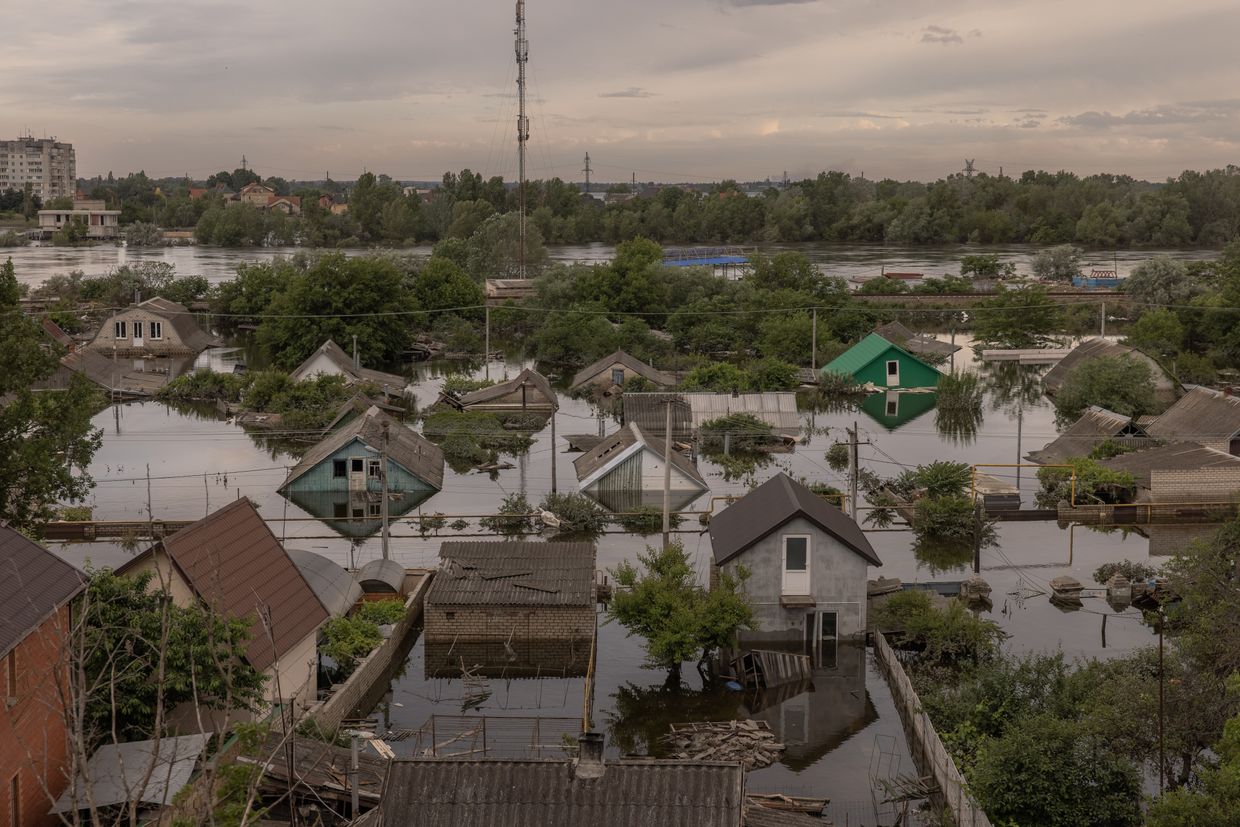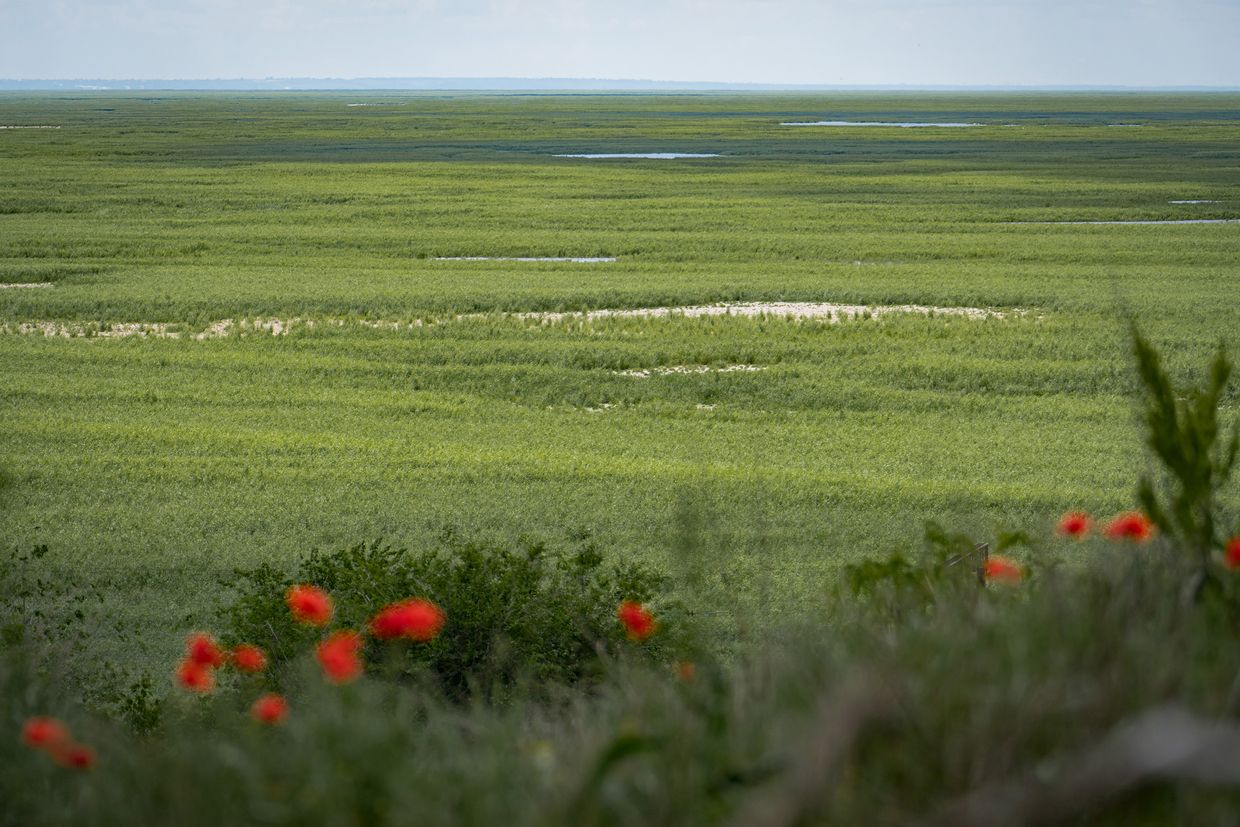Ukraine dismisses Russia's accusations of preparing false flags at 2 Ukrainian dams.
Support independent journalism in Ukraine. Join us in this fight.
Become a member Support us just onceRussian Foreign Ministry Spokesperson Maria Zakharova claimed on July 12 that Kyiv was allegedly preparing to destroy the dams of the Kyiv hydroelectric power plant and the Kaniv reservoir. Zakharova claimed at the weekly press briefing that Kyiv is allegedly planning "another provocation against Russia" with the intention to put the blame on Moscow and request additional military assistance from the West. Ukraine's Foreign Ministry denied Zakharova's accusations later in the day, calling them "absurd."
"There can be no realistic purpose or motive for Ukraine to destroy its own infrastructure or endanger its own people," the ministry's statement read. "As for 'putting the blame on Russia,' the Russian regime is doing a good job there with its own war crimes." Zakharova's statement comes slightly over a year since Russian forces blew up the Kakhovka Hydroelectric Power Plant and the adjacent dam in Kherson Oblast, causing a large-scale humanitarian and environmental disaster across southern Ukraine.
The ministry brought up the recent Russian strike against Okhmatdyt, Ukraine's largest children's hospital, on July 8. The strike killed three people, destroyed one building, and damaged four others in the hospital complex. "The only reason for the threats to civilians and the destruction of critical infrastructure in Ukraine is Russian aggression," the ministry said.
"If Moscow carries out any criminal intentions against the dams of the Kyiv hydroelectric power station, the Kaniv reservoir, or other infrastructure, the aggressor state of Russia will be solely responsible for such actions." The real purpose of such statements by Moscow is to intimidate Ukrainian society and mislead the international community and the media, according to the Ukrainian Foreign Ministry.
Looking back at the Kakhovka Dam explosion one year later (Photos) When Russian forces blew up the Kakhovka Dam on June 6, 2023, they changed the landscape of southern Ukraine permanently.
The breach unleashed nearly 20 cubic kilometers of water from the Kakhovka reservoir, a massive body of freshwater spanning three oblasts. Water levels in sever...

Ukraine's Center for Countering Disinformation reiterated the ministry's statement, saying that Russia continues to try to "destabilize the situation in Ukraine" as part of its disinformation operation "Mir" ("Peace" in Russian). The operation aims to intimidate Ukrainians with the threat of new terrorist attacks and cause panic, the center says.
"At the same time, narratives about the need for 'peace at any cost' are being thrown into Ukrainian society. That is, de facto surrender," the statement read. Zakharova's statements look like an attempt to provide Russia with an alibi before the attack, but Moscow does not have the means and capabilities to destroy the dams, according to the center.
"It is impossible to destroy these facilities with missile strikes, and the option of sabotage is excluded, as the dams are under enhanced protection," the center added. Russian troops blew up the Kakhovka plant and the adjacent dam on June 6, 2023. The floods caused by the breach killed at least 32 people in Ukrainian-held territories, according to Ukraine's Defense Ministry.
Russia, in turn, claimed that 59 people died in the territory it occupies, while an Associated Press investigation discovered that in the town of Oleshky alone, the number is at least in the hundreds.
Deer and boar could roam forests in the Kakhovka reservoir in 5 years, head of national reserve says
A verdant green forest has sprouted in one of Ukraine's most unlikely locations -- the Kakhovka reservoir left nearly empty after Russia blew up its dam last year.
Following the destruction of the dam on June 6 last year, nearly 20 cubic kilometers of water flooded Ukraine's four southern
